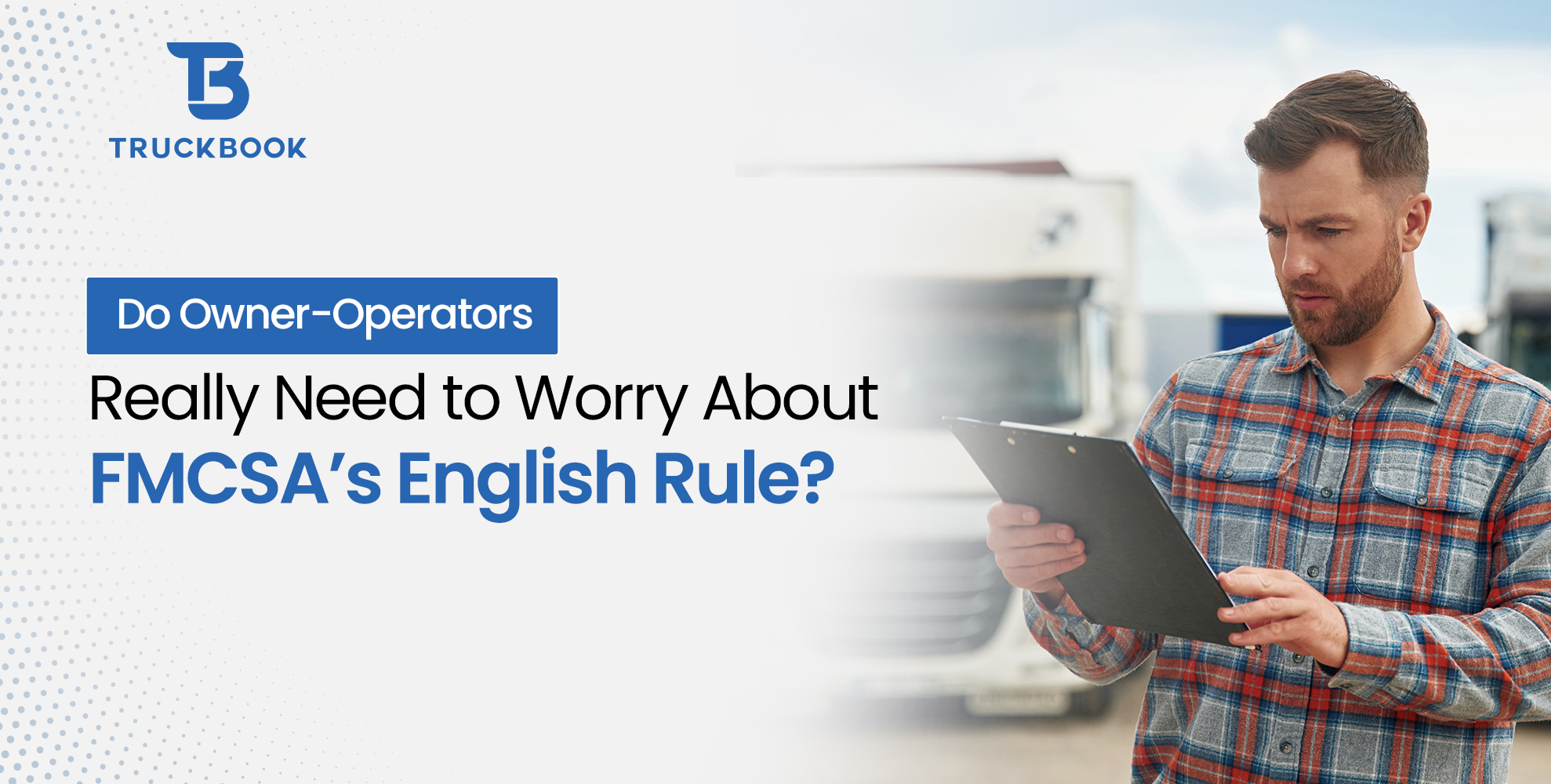Operating as an independent trucker is no small feat. From managing loads to handling permits and taxes, owner-operators already juggle a lot. If you use tools like TruckBook to manage your loads and stay compliant, it’s even more important to understand all the rules that affect your business. One rule that often gets overlooked until it bites hard is the FMCSA’s English Language Proficiency Requirement. And yes, this is one rule you can’t afford to ignore.
Let’s be real many truck drivers in America are immigrants or non-native English speakers. Some have been hauling loads across state lines for years without issue. So the question arises: Do owner-operators really need to worry about the FMCSA’s English Rule? The short answer is absolutely.
What Exactly Is the FMCSA English Rule?
The Federal Motor Carrier Safety Administration (FMCSA) requires that commercial drivers in interstate commerce must “read and speak the English language sufficiently” to do four key things:
- Converse with the general public
- Understand highway signs and signals
- Respond to official inquiries
- Write entries on reports and records
This isn’t some vague guideline buried in a handbook it’s codified in 49 CFR § 391.11(b)(2). In practical terms, during inspections, accidents, or any official interaction, drivers need to prove they can handle basic English communication. And before you shrug it off, know that violations can result in being placed out of service on the spot.
Why It Matters for Owner-Operators
Owner-operators don’t have the safety net that large fleets offer. If you’re an independent driver, you’re the dispatcher, mechanic, accountant, and driver all rolled into one. There’s no one to speak on your behalf if you’re pulled over for a Level I inspection and an officer questions your ability to respond in English.
Failing to meet this standard doesn’t just risk delays it can:
- Lead to immediate shutdowns
- Damage your CSA (Compliance, Safety, Accountability) score
- Hurt your insurance premiums
- Cost you clients who depend on compliance
In short, your entire business can suffer from a misunderstanding literally.
Is It Really Enforced?
Yes, and perhaps more often than drivers realize. During roadside inspections, FMCSA officers are trained to assess English proficiency on the spot. They don’t need formal proof of fluency; instead, they might ask simple questions like:
- “Where are you headed today?”
- “Can I see your logbook?”
- “What was your last stop?”
If a driver struggles to answer, stammers, or fails to understand the officer’s requests, this could raise red flags. Enforcement can be subjective, but it’s legal—and it’s happening.
Data shows that English language violations are cited every year, especially in areas with high volumes of international drivers. Ports and border zones see regular checks, but random inspections can happen anywhere, anytime.
Common Myths About the Rule
- Myth: “I use a GPS, so I don’t need to read signs.”
Reality: GPS fails. You still need to understand detours, closures, and DOT orders. - Myth: “I’ve driven for years without a problem.”
Reality: One inspection is all it takes. FMCSA citations are sticky and hard to remove.
What Can Owner-Operators Do to Prepare?
Here’s the good news: No one expects you to be Shakespeare. But you do need to communicate clearly enough to comply. Here’s how to stay ready:
- Practice common inspection phrases. Know how to respond to typical officer questions.
- Take a free online ESL trucking course. Some are tailored to FMCSA needs.
- Use language support tools. Apps like Duolingo, Google Translate (offline mode), or even TruckBook’s resources can help.
- Keep documentation handy. If you’re still learning English, having bilingual documents can bridge the gaps.
How TruckBook Can Help
TruckBook isn’t just about finding loads—it’s about helping owner-operators succeed. The app provides a resource center that includes:
- Safety checklists
- Communication guides
- Links to English learning tools
- Updates on DOT and FMCSA compliance
Think of it as your virtual compliance buddy ready to support you on and off the road.
Bottom Line: Don’t Let a Language Barrier Sideline Your Rig
Owner-operators wear many hats, and mastering English might not seem like the top priority. But if the DOT pulls you over and you can’t answer basic questions? That’s a problem. A preventable one.
The FMCSA isn’t trying to punish non-native speakers. The intent is safety. Drivers who can understand and respond to instructions are less likely to cause accidents, miss detours, or mishandle emergencies.
So yes, the English Rule matters. And ignoring it could cost you more than just a fine—it could shut down your truck.
If you’re a TruckBook user, explore the in-app resources now. And if you haven’t joined yet, what are you waiting for?







